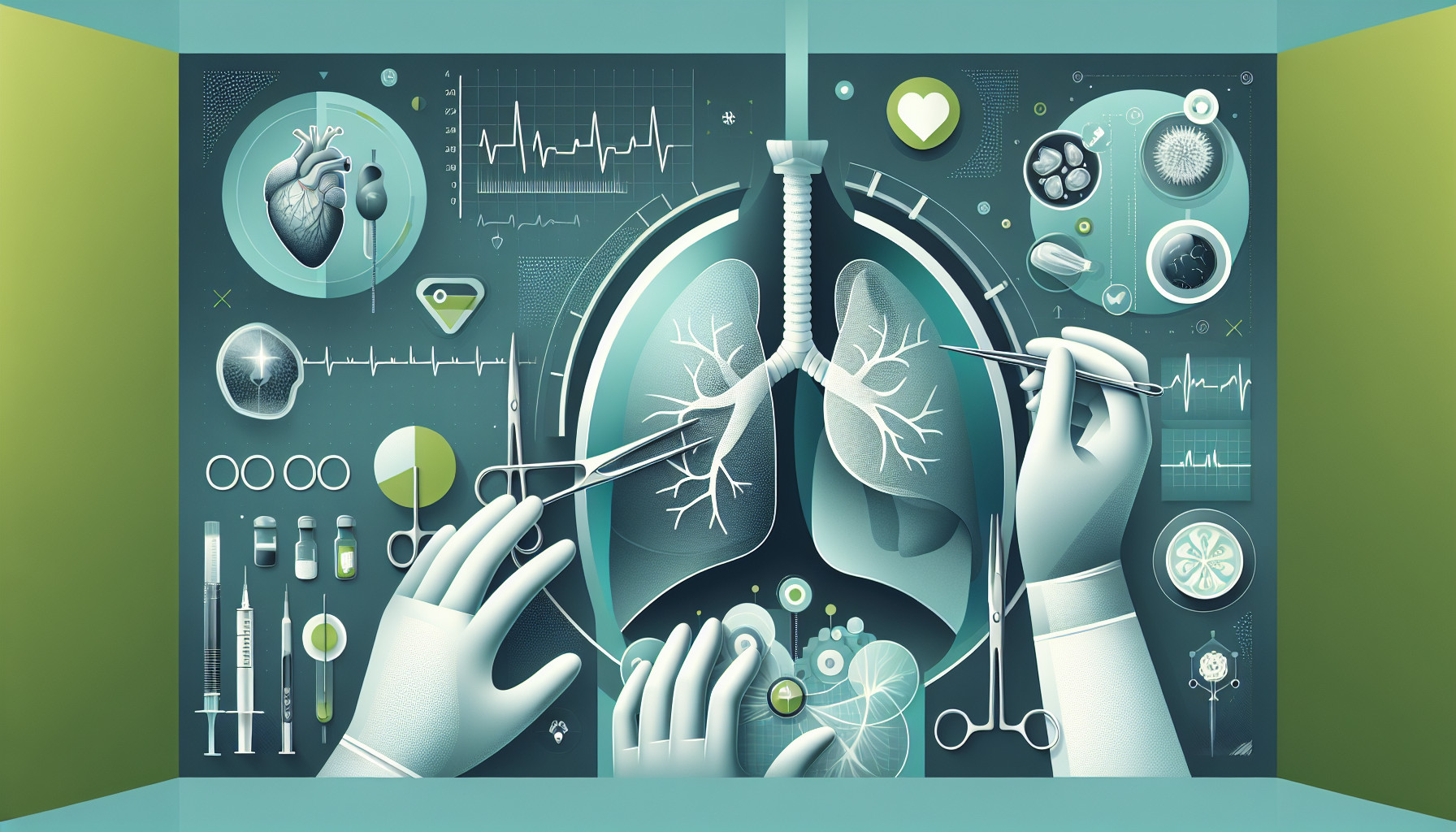Our Summary
This research paper looked at how different factors can affect the outcome of a lung transplant. The researchers studied patients who were going through the process of qualifying for a lung transplant. They collected data on things like the patients’ marital status, where they lived, their income, their job, and their mental and emotional health.
The study included 121 patients, most of whom were men and the average age was about 55 years old. Most of them lived in the city and had a regular income from their job. The majority were married. The researchers also used a test (the Stanford Integrated Psychosocial Assessment for Transplant or SIPAT) to measure how well the patients might cope with the transplant process.
The results showed that these factors can indeed play a big role in how well a patient does after a lung transplant. This means that doctors should consider these things when preparing a patient for a lung transplant. The researchers believe that understanding a patient’s background can help improve the outcome of the transplant.
FAQs
- What factors were examined in this research study on lung transplants?
- How does patients’ background information affect the outcome of a lung transplant?
- What is the Stanford Integrated Psychosocial Assessment for Transplant (SIPAT) and how is it used in the study?
Doctor’s Tip
One helpful tip a doctor might give a patient about lung transplant is to focus on maintaining good mental and emotional health throughout the process. This can include seeking support from loved ones, attending therapy or support groups, and practicing stress-relief techniques. Studies have shown that patients who have better mental and emotional health going into a lung transplant tend to have better outcomes and a higher quality of life post-transplant. It is important to prioritize self-care and seek help when needed to ensure a successful recovery.
Suitable For
Patients who are typically recommended for a lung transplant are those who have end-stage lung disease and have exhausted all other treatment options. This includes patients with conditions such as cystic fibrosis, pulmonary fibrosis, chronic obstructive pulmonary disease (COPD), and pulmonary hypertension. These patients must meet certain criteria set by transplant centers, including being physically able to undergo the transplant surgery and having a good chance of survival post-transplant.
In addition to meeting medical criteria, patients who are recommended for a lung transplant may also need to undergo a psychosocial evaluation to assess their mental and emotional health. This evaluation helps determine if the patient is mentally prepared for the challenges of the transplant process, including the physical demands of surgery, recovery, and potential complications. Patients who have strong social support networks, stable housing, and financial resources are generally considered better candidates for a lung transplant.
Overall, patients who are recommended for a lung transplant are those who have a high likelihood of benefiting from the procedure and have the necessary support systems in place to help them through the transplant process and recovery.
Timeline
Before a lung transplant:
- Patient is diagnosed with a severe lung disease that cannot be treated with other methods.
- Patient undergoes extensive medical evaluations to determine if they are a suitable candidate for a lung transplant.
- Patient is placed on a waiting list for a donor organ.
- Patient may experience worsening symptoms and decreased quality of life while waiting for a transplant.
After a lung transplant:
- Patient undergoes the transplant surgery, which can be a lengthy and complex procedure.
- Patient is closely monitored in the intensive care unit post-transplant to ensure the organ is functioning properly.
- Patient must take immunosuppressant medications for the rest of their life to prevent rejection of the new lung.
- Patient undergoes rehabilitation and physical therapy to regain strength and lung function.
- Patient attends regular follow-up appointments with their transplant team to monitor their progress and address any issues that may arise.
What to Ask Your Doctor
What are the potential risks and complications associated with a lung transplant?
How long is the recovery process after a lung transplant and what can I expect during this time?
What medications will I need to take after the transplant and how will they affect my daily life?
How often will I need to follow up with my transplant team after the surgery?
Are there any lifestyle changes I will need to make after the transplant, such as diet or exercise?
How will my mental and emotional health be monitored and supported throughout the transplant process?
What are the success rates for lung transplants in patients with similar factors to mine (e.g. age, marital status, income)?
What are the criteria for being placed on the lung transplant waiting list and how long is the average wait time for a donor organ?
Are there any support groups or resources available for patients going through the lung transplant process?
How will my overall quality of life be affected after a lung transplant and what can I do to maximize my health and well-being post-transplant?
Reference
Authors: Karolak W, Stańska A, Wojarski J, Shinde R, Ciak E, Polishchuk A, Łojko M, Sheikhsagha E, Ulstrup IH, Łacka M, Maruszewski M, Woźniak-Grygiel E, Abba ME, Górski D, Zeglen S. Journal: Transplant Proc. 2022 May;54(4):1078-1081. doi: 10.1016/j.transproceed.2022.03.015. Epub 2022 May 15. PMID: 35581012
